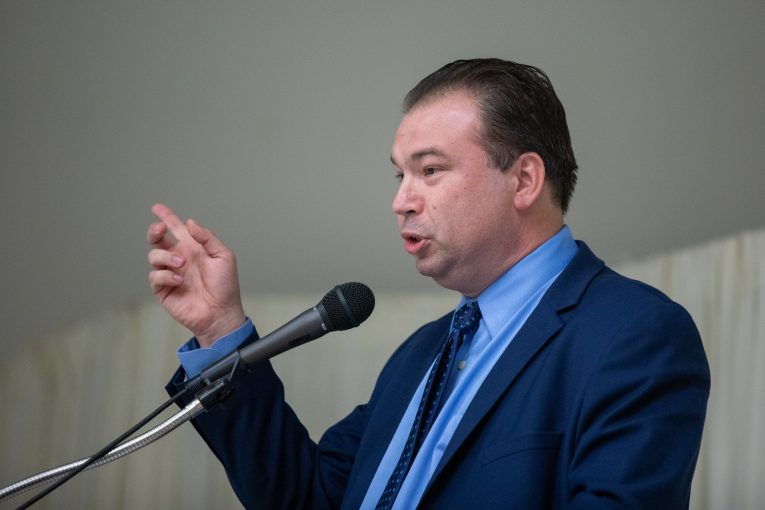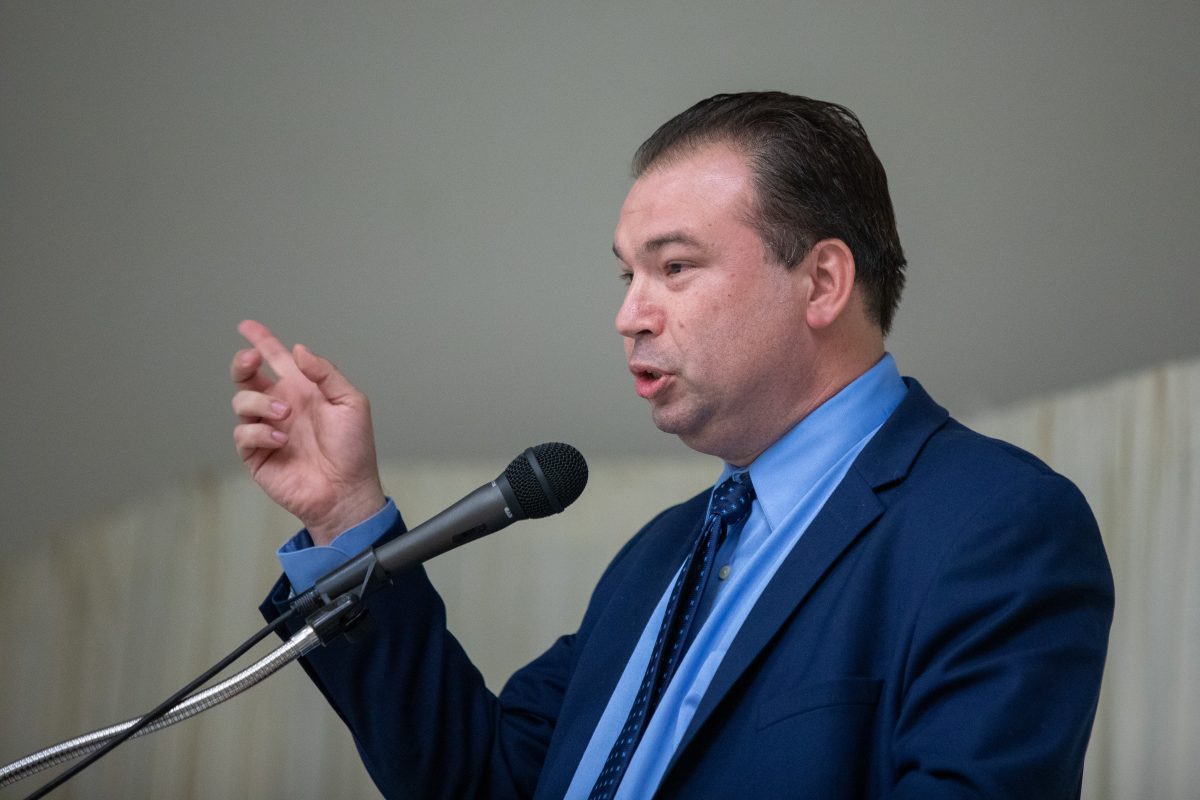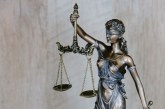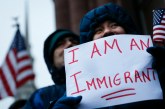

by Jeffrey Deskovic
“Looking back” will feature reprints of articles that Jeff previously wrote while a columnist at The Westchester Guardian, which encompass topics that are applicable here in CA as well as across the country and not simply applicable to NY.
Over the course of slightly more than two decades, DNA testing has proven that wrongful convictions occur much more frequently than was previously believed. The testing has provided wrongful conviction samples to be studied, with the goal of identifying wrongful conviction causes, and recognizable patterns. As a result, we now know many of the causes of wrongful conviction: false confessions, misidentification, junk science, witnesses who lie in exchange for benefit, as well as prosecutorial misconduct and bad lawyering.
As a result, legislative changes are sought to address those causes with the goal of preventing future wrongful convictions. Part of the concern which fuels the effort is the fact that the same deficiencies that have led to wrongful convictions in DNA cases also exist in cases that do not have DNA to be tested. Therefore, clearing the wrongfully convicted in such cases, although possible, is much more difficult. The difficulty is amplified by the fact that there are very few innocence project organizations that are willing to take on  non-DNA cases.
non-DNA cases.
Although organizations often assume the label “Innocence Project” as part of their name, leading casual observers to believe that they take on all cases of wrongful conviction, the sad reality is that almost all of them work with DNA cases exclusively. Given that DNA is only available in 10-12% of all serious felony cases, there is no doubt that factually innocent persons have been turned away by DNA-only innocence projects, and that they often have no place else to turn. That is totally unacceptable to me.
This possibility is no mere theory: the recent exoneration of Dewey Bozella in Dutchess County, New York, after 26 years of wrongful incarceration, previously covered in The Guardian, is but one example. Bozella had written to The Innocence Project in New York for help. However, once it became apparent that the physical evidence had been destroyed and that DNA testing would not be an option, the Project no longer provided representation. However, Bozella did get lucky in that the law firm of Wilmer Hale was contacted by The Innocence Project and asked to take his case, which they agreed to do; DNA-only innocence projects usually do not take that step.
Perhaps my own sensitivity can be best attributed to my personal experience. In the course of my 16-year-long incarceration, I reached a point, in 2001, when my appeals were totally exhausted, and I no longer had legal representation. At that point, I had to find an attorney who would be willing to work for me for free, as well as an investigator so inclined, and hope that together they might find some new evidence of innocence.
I was turned down by numerous innocence projects. I know, firsthand, what it is like once one has been turned away by existing organizations. One is then stuck writing long shot, at times even random, desperate letters to any number of organizations and people, most of the time not even getting a response.
I know what that felt like mentally: the level of desperation, frustration, helplessness, constantly having to fight off feelings of wanting to give up, as well as the gnawing and corrosive depression; and how even coming up with another place to seek assistance from became an almost insurmountable challenge. I came up with all kinds of lines of reasoning and angles as to how people or places could possibly help me. I now realize, as well, in hindsight, that, through my desperation, I sometimes ascribed powers to people far beyond their real capabilities.
Existing Non-DNA Innocence Projects
Despite the dearth of non-DNA innocence projects, still there are a few existing organizations worth mentioning. One of them is the Medill Innocence Project, which is housed at Northwestern University, at their Journalism School. Under the supervision of Professor David Protess, students follow up on leads, interview and reinterview witnesses, and investigate alternative suspects, as a practical, hands-on training in investigative journalism. I would like to acknowledge the innovativeness in their approach.
Centurion Ministries, the country’s oldest innocence project, headquartered in New Jersey, takes on DNA and non-DNA cases alike. They have investigators on staff, and when a case is developed enough sufficiently to be taken to court, they proceed to hire an attorney.
The Exoneration Initiative is a new organization which is based in New York City. Professor William Hellerstein, who was formerly with the now-defunct Second Look Program out of Brooklyn Law School that took on non-DNA cases, has helped to develop the new organization.
Although they take on non-DNA cases, they do use DNA as a tool when the result of testing is not dispositive of the question of guilt or innocence but instead opens up other avenues of inquiry. A good example of this was the recent William McCaffrey case in which saliva from a bite mark that the victim sustained yielded a negative result. When confronted with this, the victim recanted, admitting that she lied about the entire matter. The saliva on its own would not have cleared McCaffrey, because theoretically she could have sustained the bite from actions un- related to the alleged rape.
Exoneration in Non-DNA Cases
Although it is harder to clear people in non-DNA cases, it is not impossible. The above-mentioned Bozella case, along with the well- known Marty Tankleff case each illustrate that fact. I wish to briefly review other methods of exonerating wrongfully convicted in non-DNA cases:
- Investigation alternative suspects
- Reinterviewing witnesses;
- Following up on unexplored leads;
- Misidentification recantations;
- Obtaining third party confessions;
- The discovery of exculpatory evidence previously withheld;
- Discovering new evidence of innocence;
- The revelations of junk sciences;
- The exposure of ‘experts’ that have engaged in fraud.
Incredibly, it has also occurred that experts either do not have the necessary educational background, or have inflated the statistical significance of a match or other piece of evidence as “consistent” with victim injuries or a prosecution theory.
Finally, yet another method involves learning something that discredits a key piece of evidence used in helping to convict, and/or the discovery that key parts of testimony were perjured.
“Jeffrey Deskovic, Esq, MA, is an internationally recognized wrongful conviction expert and founder of The Jeffrey Deskovic Foundation for Justice, which has freed 9 wrongfully convicted people and helped pass 3 laws aimed at preventing wrongful conviction. Jeff is an advisory board member of It Could Happen To You, which has chapters in CA, NY, and PA. He serves on the Global Advisory Council for Restorative Justice International, and is a sometimes co-host and co-producer of the show, “360 Degrees of Success.” Jeff was exonerated after 16 years in prison-from age 17-32- before DNA exonerated him and identified the actual perpetrator. A short documentary about his life is entitled “Conviction“, and episode 1 of his story in Virtual Reality is called, “Once Upon A Time In Peekskill“. Jeff has a Masters Degree from the John Jay College of Criminal Justice, with his thesis written on wrongful conviction causes and reforms needed to address them, and a law degree from the Elisabeth Haub School of Law at Pace University. Jeff is now a practicing attorney.





